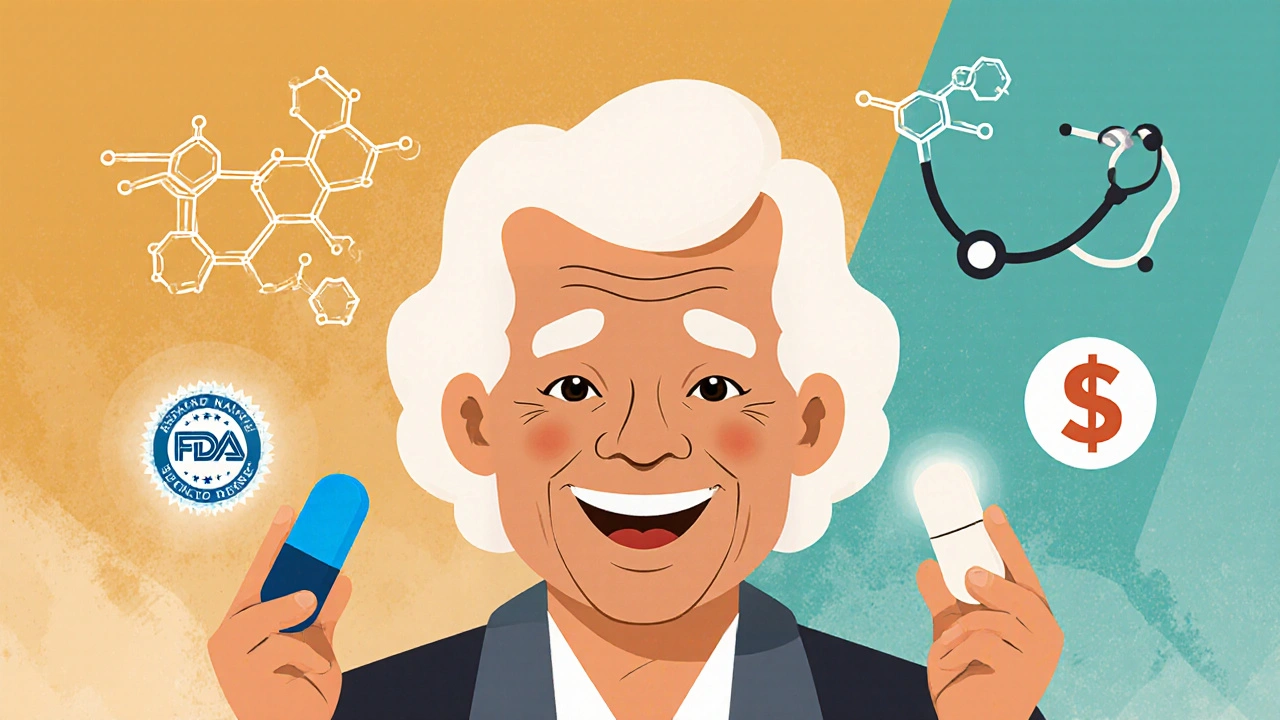Medication Confidence: Know Your Drugs, Trust Your Choices
When you take a pill, you should feel sure it’s the right one, at the right dose, and won’t clash with what else you’re using. That’s medication confidence, the quiet certainty that comes from understanding what you’re taking and why. It’s not about blind trust in a prescription—it’s about knowing the facts, spotting red flags, and asking the right questions. Too many people swallow pills without knowing if they’re safe with their coffee, their supplements, or their other meds. That’s where drug interactions, when one substance changes how another works in your body become dangerous. Grapefruit can turn a statin into a toxin. St. John’s wort can make birth control useless. Vitamin K can undo warfarin. These aren’t rare accidents—they’re preventable mistakes.
generic drugs, the same active ingredients as brand names but at a fraction of the cost are a huge part of building that confidence. They make up 90% of prescriptions in the U.S. but only 12% of drug spending. That’s $445 billion saved since 1984. Yet many still think generics are "weaker" or "less safe." They’re not. They’re held to the same standards. The real issue? Lack of clear education. That’s why Spanish-language tools for understanding generics matter—they help people who need it most cut through confusion. And when you know your meds are safe, effective, and affordable, your confidence grows.
Then there’s medication education, the process of learning how your drugs work, what side effects to expect, and how to avoid hidden risks. Fentanyl patches can save lives—but heat from a hot shower can turn them deadly. Antibiotics can trigger yeast infections by wiping out good bacteria. Even something as simple as Tylenol vs. ibuprofen needs context: one is safer for your stomach, the other for your kidneys. These aren’t abstract ideas—they’re daily decisions that shape your health. The posts here don’t just list facts. They show you how to compare drugs, spot dangerous combos, understand liver tests after long-term use, and choose between options like Compazine and its alternatives. You’ll see how methimazole helps cats with thyroid issues, how valacyclovir is dosed for kids, and why heat with fentanyl patches is a silent killer.
You don’t need a pharmacy degree to have medication confidence. You just need clear, honest info—no jargon, no fluff. That’s what this collection gives you. Whether you’re managing your own meds, helping a parent, or just tired of guessing what’s safe, these guides cut through the noise. You’ll walk away knowing not just what to take—but why, when, and how to stay safe.

Patient Trust: How to Build Confidence in Generic Medications
Generic medications are just as effective as brand-name drugs but cost up to 85% less. Learn why patients still distrust them-and how doctors, pharmacists, and the FDA are building real confidence in generics today.
